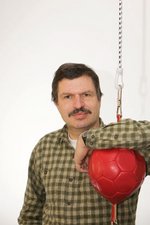
Dear Reader,
With this booklet, the University of Duisburg-Essen is pleased to present a general Research Report for the first time. The Report was designed to give due consideration to the four major areas of research interest that the University identified in 2003.
These areas have been named to allow the University to develop a research profile based on those research fields in which it is striving, with its particular capabilities and assets, to become one of the leading scientific centres in Germany. The research topics cover wide areas, are interdisciplinary in character and offer many scientists at our University the opportunity to make an impactful contribution. Indeed, these four research fields, listed below, are now increasingly associated with the University of Duisburg-Essen:
- Nanosciences
- Genetic Medicine and Medical Biotechnology
- Empirical Educational Research
- Urban Systems.
The scientific results that have been obtained in these fields of research are set out in the Report in greater detail.
However, no university can thrive on four major research areas alone, no matter how broadly conceived they might be. To do full justice to the sheer variety of research at the University of Duisburg-Essen, this Research Report therefore contains accounts of results from other selected scientific institutes.
All in all, I would say, the University of Duisburg-Essen can view its achievements in the world of research with pride. This is corroborated by the Funding Rankings 2006 compiled by the Deutsche Forschungsgemeinschaft (DFG, German Research Foundation). Here one can follow up the extent to which the various universities were able to acquire research funding from the DFG in the years 2002 to 2004. DFG grants are awarded via a competitive process. Only good ideas and achievements have any chance of getting through.
In the categories of mathematics and physics, our University gained sixth and seventh places in the DFG Rankings for German universities. To be in the Top Ten in such fields of study is probably an achievement that many, including our friends, would never have credited us with!
In addition, the various collaborative research centres or Sonderforschungsbereiche, research units and research training groups or Graduiertenkollegs – which were all set up with grants from the DFG – are further evidence of our excellence in science.
Although there is still a lot to be done if we are to make the University a research university commensurate with its size, this Research Report 2007 makes it quite clear that the University of Duisburg-Essen attaches great importance to research quality and has already notched up a number of peak achievements in many different fields – achievements of which all the members of the University can be proud.

